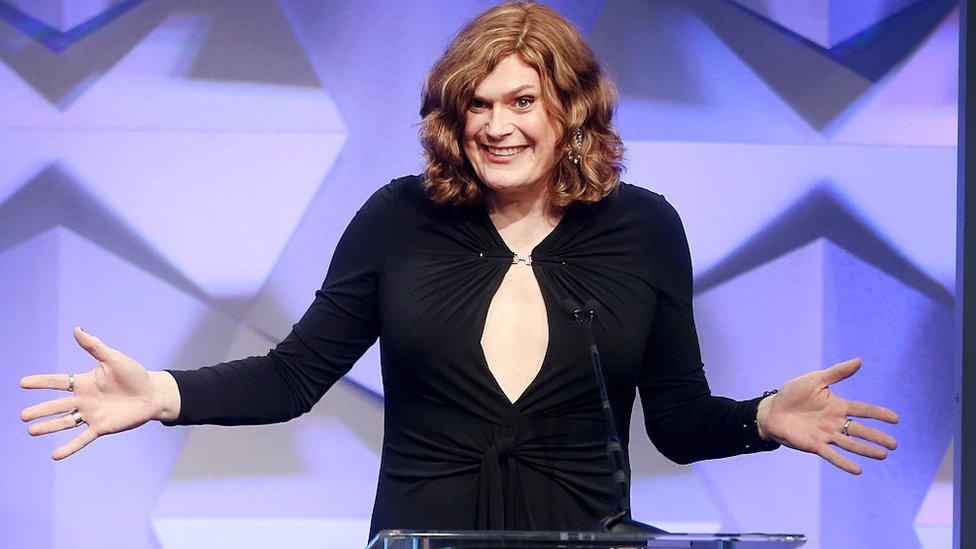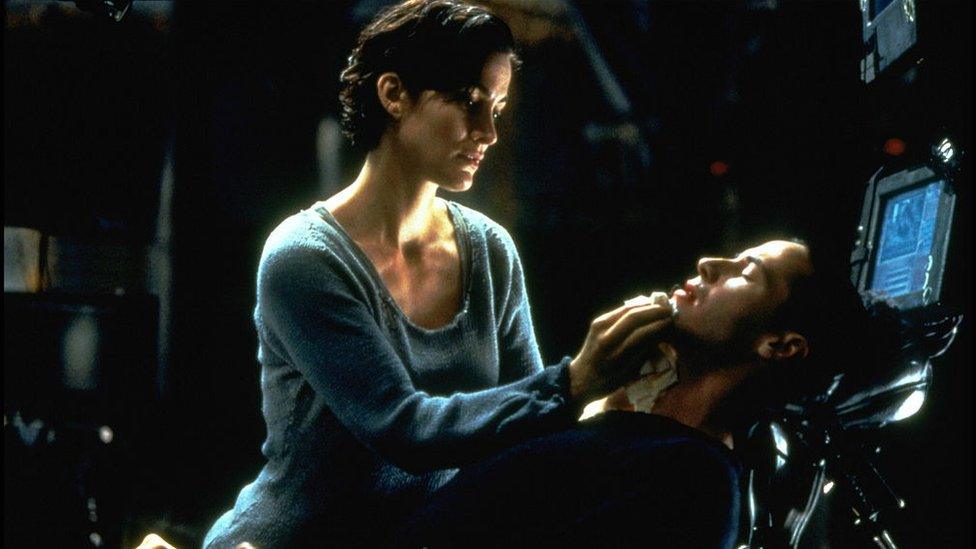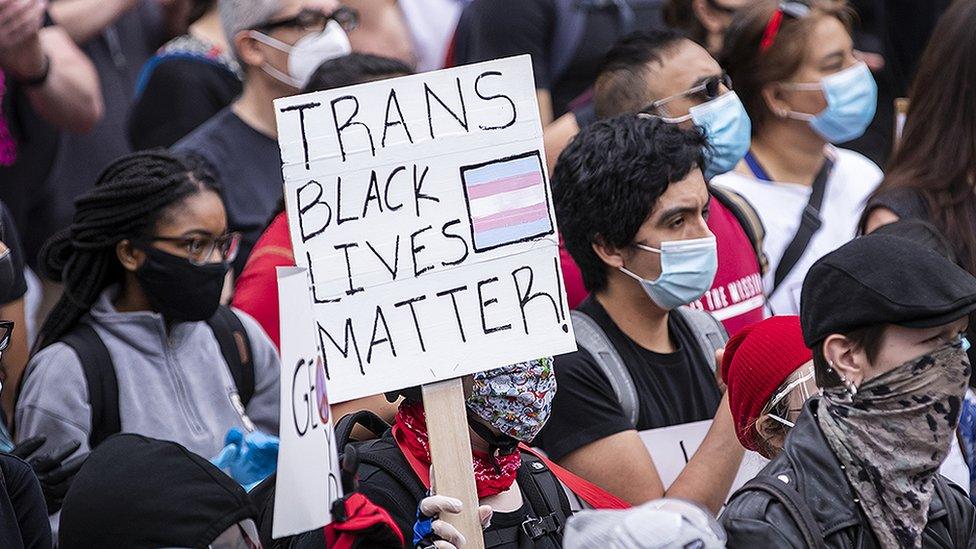The Matrix is a 'trans metaphor', Lilly Wachowski says
- Published

Lilly accepts the oustanding series GLAAD Award for Sense8 in 2016
The Matrix films are about being transgender, the trilogy's co-director says.
"That was the original intention but the world wasn't quite ready," says Lilly Wachowski, who came out as trans along with her sister Lana after the films came out.
Fans have speculated about potential meanings behind the iconic films and Lilly confirmed the theory to Netflix.
"I'm glad that it has gotten out," she said.
The Matrix first hit screens in 1999, when Lilly says "the corporate world wasn't ready" for an allegory - a story that can be interpreted to reveal a hidden meaning - about transgender people.
But the director says the films have always been "meaningful" for trans people.
"They come up to me and say these movies saved my life.
"I'm grateful I can be throwing them a rope to help them along their journey."
Allow YouTube content?
This article contains content provided by Google YouTube. We ask for your permission before anything is loaded, as they may be using cookies and other technologies. You may want to read Google’s cookie policy, external and privacy policy, external before accepting. To view this content choose ‘accept and continue’.
The character Switch - who *spoiler alert* didn't make it past the first film - shows "where our headspaces were", Lilly says in a Netflix video.
"The Matrix stuff was all about the desire for transformation but it was all coming from a closeted point of view.
"We had the character of Switch - who was a character who would be a man in the real world and then a woman in the Matrix."
Lilly doesn't know "how present my transness was in the background of my brain as we were writing" The Matrix.
"But it all came from the same sort of fire that I'm talking about."
She was always drawn to science fiction because "we were existing in a space where the words didn't exist, so we were always living in a world of imagination".

Keanu Reeves and Carrie-Anne Moss are back for the fourth Matrix film in 2022
Lana was the first of the siblings to transition, telling the New Yorker, external in 2012 how much she was struggling with her gender identity around the time of the second and third Matrix films.
"For years, I couldn't even say the words 'transgendered' or 'transsexual'.
"When I began to admit it to myself, I knew I would eventually have to tell my parents and my brother and my sisters.
"This fact would inject such terror into me that I would not sleep for days. I developed a plan that I worked out with my therapist. It was going to take three years. Maybe five."
'One of the lucky ones'
Lilly came out publicly as trans in 2016 after a reporter from the Daily Mail turned up at her door.
"I just wanted - needed some time to get my head right, to feel comfortable. But apparently I don't get to decide this," she said in a statement to the Windy City Times, external afterwards.
"I am one of the lucky ones. Having the support of my family and the means to afford doctors and therapists has given me the chance to actually survive this process.
"Transgender people without support, means and privilege do not have this luxury. And many do not survive."
The Matrix trilogy - and particularly the first film, which won four Academy Awards - appear in plenty of lists about the "greatest science fiction films of all-time".
Neo, played by Keanu Reeves, wakes up to the reality that he's been living in a computer simulation his whole life - his physical body, along with the rest of the human race, is being used as an energy source by machine overlords.
There is set to be a fourth film in the series, directed by Lana alone, expected for 2022.


Follow Newsbeat on Instagram, external, Facebook, external, Twitter, external and YouTube, external.
Listen to Newsbeat live at 12:45 and 17:45 weekdays - or listen back here.
- Published4 November 2019

- Published21 August 2019

- Published21 August 2019

- Published27 June 2020
